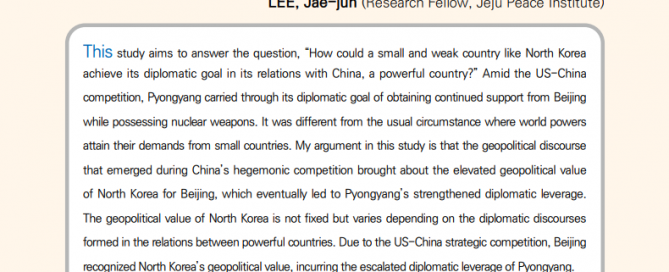Beijing’s Geopolitical Discourse and Pyongyang’s Diplomatic Leverage: A Comparison of the US-China Strategic Competition and the Sino-Soviet Conflict
This study aims to answer the question, “How could a small and weak country like North Korea achieve its diplomatic goal in its relations with China, a powerful country?” Amid the US-China competition, Pyongyang carried through its diplomatic goal of obtaining continued support from Beijing while possessing nuclear weapons. It was different from the usual circumstance where world powers attain their demands from small countries. My argument in this study is that the geopolitical discourse that emerged during China’s hegemonic competition brought about the elevated geopolitical value of North Korea for Beijing, which eventually led to Pyongyang’s strengthened diplomatic leverage. The geopolitical value of North Korea is not fixed but varies depending on the diplomatic discourses formed in the relations between powerful countries. Due to the US-China strategic competition, Beijing recognized North Korea’s geopolitical value, incurring the escalated diplomatic leverage of Pyongyang.










